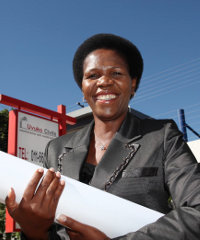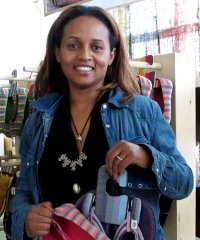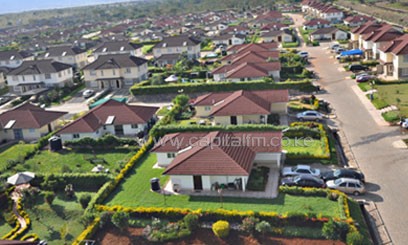Pan Africa Insurance closes Sanlam Kenya acquisition
By GEORGE NGIGI, Business Daily http://www.businessdailyafrica.com/ @All Rights Reserved

Members of the public pass by a Sanlam billboard in Nairobi. Pan Africa
Insurance has bought the Kenyan operations of the SA firm.
In Summary
- Pan Africa Insurance said it had acquired 72.5 per cent shares of Sanlam and a further 10 per cent stake owned by a former chief executive of the investment firm.
- The acquisition gives the insurance firm a free hand in the management of funds mobilised through its life business.
- Unit trusts have are becoming more popular in the country following their opening up to the lower end market by inviting small savers to their fold.
Pan Africa Insurance
has bought out the Kenyan operations of South Africa-based assets
manager Sanlam Investment, concluding a phased acquisition that started
in 2008.
The Nairobi Securities Exchange listed insurer
said that it had acquired 72.5 per cent shares of Sanlam and a further
10 per cent stake owned by a former chief executive of the investment
firm.
The acquisition gives the insurance firm a free hand in the management of funds mobilised through its life business.
“The transaction will result in Sanlam Investment
Management Kenya being a wholly owned subsidiary of the company. This
will enable easier distribution of investment products by the group’s
financial advisors,” said Pan Africa’s chief executive Tom Gitogo.
Both firms have common shareholding in South
Africa’s Sanlam, a financial services group that is listed at the
Johannesburg Stock Exchange and Namibian Stock Exchange.
The insurer follows the footstep of other insurance companies such as CIC, Britam and UAP that have lately opened their own fund management firms to invest their collections from life policies.
Pan Africa declined to disclose the value of the
transaction, stating that it was based on the net book value as at end
of last year. Pan Africa bought a 17.5 per cent stake in Sanlam for
Sh3.8 million in 2008 in a deal that at the time valued the fund
management company at Sh21.7 million.
Sanlam, the parent company, owned 55.7 per cent of
Pan Africa Insurance as at the end of 2012 through an entity named
Hubris Holdings Ltd.
It has however stated that it wants to increase
its shareholding in the insurance company to 60 per cent by buying
shares in the open market so as to have more control of its management.
Mr Gitogo said the acquired firm would retain its
name while disclosing intent to invite individuals and institutions to
invest through them using unit trusts. “We are looking forward to
entering the unit trusts market,” he said.
Unit Trusts provide investors an opportunity to
invest in a portfolio of stocks or fixed-income securities or both,
without directly going to the market themselves. The investors deposit
funds with fund managers, who charge them a management fee for their
services.
Unit trusts have are becoming more popular in the
country following their opening up to the lower end market by inviting
small savers to their fold.
On Tuesday the insurer’s share price went up by two shillings to Sh61.50, on a trading volume of 25,000 shares.Awesome Insurance






















